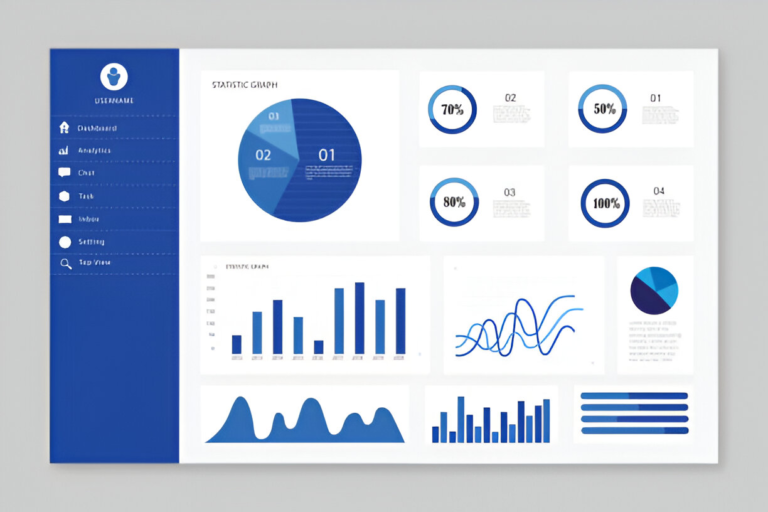When I started my entrepreneurial journey, selling anything seemed like walking a tightrope over a sea of complexities. Everything went through layers of wholesalers, distributors, and retailers—a maze where efficiency was hard to find. Back then, the idea of cutting out these middlemen felt impossible, more like a distant dream. But the digital age that was coming had other plans.
Today, Direct-to-Consumer (D2C) brands have rewritten the manual. They’ve simplified commerce, putting businesses directly in touch with customers. For me, watching this revolution has been both inspiring and a learning curve. It’s a testament to the power of connection, innovation, and agility.
Here’s how these trailblazers are reshaping the world of e-commerce and the lessons we can draw from their success.
I vividly recall a conversation during Ergode’s early days. A customer had a simple question about a product, but the answer had to zigzag through multiple channels before it reached them. I remember thinking, “What if we could just talk to them directly? ” D2C brands have turned that “what if” into reality, breaking down barriers to create meaningful, direct relationships with customers.
When you engage with customers through social media, personalized emails, or even a well-timed message, you’re doing more than selling a product. You’re making someone feel seen and heard. That’s the magic of D2C—it “humanizes” the brand.
At an exhibition in New York, a customer once told me, “Rupesh, It feels like your company really ‘gets’ me.” That single statement perfectly captured the essence of why connection matters. It’s not just about selling products—it’s about becoming a meaningful part of someone’s journey. According to me, loyalty isn’t driven by discounts or promotions; it’s built on trust. Foster that trust, and you’ll never be just another name in someone’s inbox. Powerful, isn’t it?

Imagine trying to solve a puzzle blindfolded—that’s how business decisions used to feel without real-time data. One of the most exciting shifts I’ve seen in the D2C world is how brands now own and use their customer data. Every interaction, every click, every purchase—it’s like a conversation with your audience, telling you exactly what matters to them.
At Ergode, I’ve seen how powerful this can be. We don’t just analyze sales numbers; we dive deeper to understand what clicks with our customers and what doesn’t. What do they love? What frustrates them? Why do they keep coming back? These insights give us a clear roadmap to improve and evolve.
But here’s where it gets really interesting—AI is adding a whole new layer to this. It’s like having an extra set of eyes that spots patterns we might miss. AI helps us predict what customers might need next, tailor their experiences in ways that feel personal, and even solve problems before they arise. It’s not just tech for the sake of it; it’s about making customers feel understood and valued.
In the fast-moving D2C world, data and AI together aren’t just tools—they’re game-changers. They help brands stay nimble, adapt quickly, and keep delivering those moments that keep customers coming back. It’s like having a compass and a guide, ensuring we’re always moving in the right direction.

Picture this: a chef at a bustling restaurant tweaks a recipe based on a diner’s feedback—and the new dish becomes a hit. That’s the kind of agility D2C brands bring to the table. They can test, pivot, and refine faster than ever.
I’ve always admired the ability to act quickly. At Ergode, we’ve embraced this mindset, constantly testing new ideas and adapting as the market shifts. Whether it’s launching a product or refining a process, the speed of execution can mean the difference between success and stagnation.
The beauty of being nimble is that it turns challenges into opportunities. The brands that thrive aren’t necessarily the biggest—they’re the ones that adapt the fastest.

Here’s the thing: cutting out the middlemen does reduce costs, but that’s only part of the story. The real magic happens when you control the entire value chain—it’s not just about saving money; it’s about creating a smoother, more efficient process while keeping quality front and center.
I’ve always believed that price should reflect value. For D2C brands, it’s not just about being cost-effective—it’s about delivering products that customers can truly trust. This mindset really resonates with me. When a customer feels they’re getting something exceptional at a fair price, it’s not just another transaction; it’s the start of a lasting relationship. And isn’t that what every brand aims for?

A while back, I received an email from a customer—not to rave about a product, but to share how one of our team members went above and beyond. They wrote, “You didn’t just solve my problem; you and Rekha made my day better.” That message hit me differently. It was a reminder that loyalty isn’t about what you sell—it’s about how you make people feel.
I took a screenshot of that message, printed it out, and shared it with my team during our next meeting. We talked about how moments like these aren’t just feel-good stories—they’re the foundation of real customer loyalty.
This is where D2C brands shine. It’s not just about moving products; it’s about creating connections. I remember a time we included a handwritten note in a customer’s order just to say thank you. That small gesture led to them writing back, saying it felt like a gift from a friend.
At Ergode, we’ve made it a priority to create those meaningful interactions. Personalized recommendations, thoughtful gestures, stellar support—these are the things that make customers feel valued and turn transactions into relationships.
Because at the end of the day, loyalty isn’t about discounts or deals. It’s earned, one heartfelt moment at a time. And those moments? They’re worth everything.

The rise of D2C brands is a testament to how much e-commerce has evolved. It’s no longer just about selling—it’s about building trust, delivering value, and staying agile. For entrepreneurs and businesses alike, the takeaway is clear: success is rooted in connection.
If there’s one lesson the D2C movement has taught me, it’s this: people don’t just buy products—they buy experiences. The brands that focus on fostering genuine relationships, backed by data and agility, will not only survive—they’ll thrive in the ever-changing e-commerce landscape.
As I reflect on this journey, one thing is clear: the future belongs to those willing to rethink old systems and embrace change. Whether you’re a startup carving your path or an established player reinventing yourself, the D2C model offers a blueprint for success. It’s about cutting through the noise, staying close to your customers, and evolving with them. The brands that prioritize connection, agility, and trust won’t just lead the industry—they’ll redefine it.
Until next time,
Rupesh